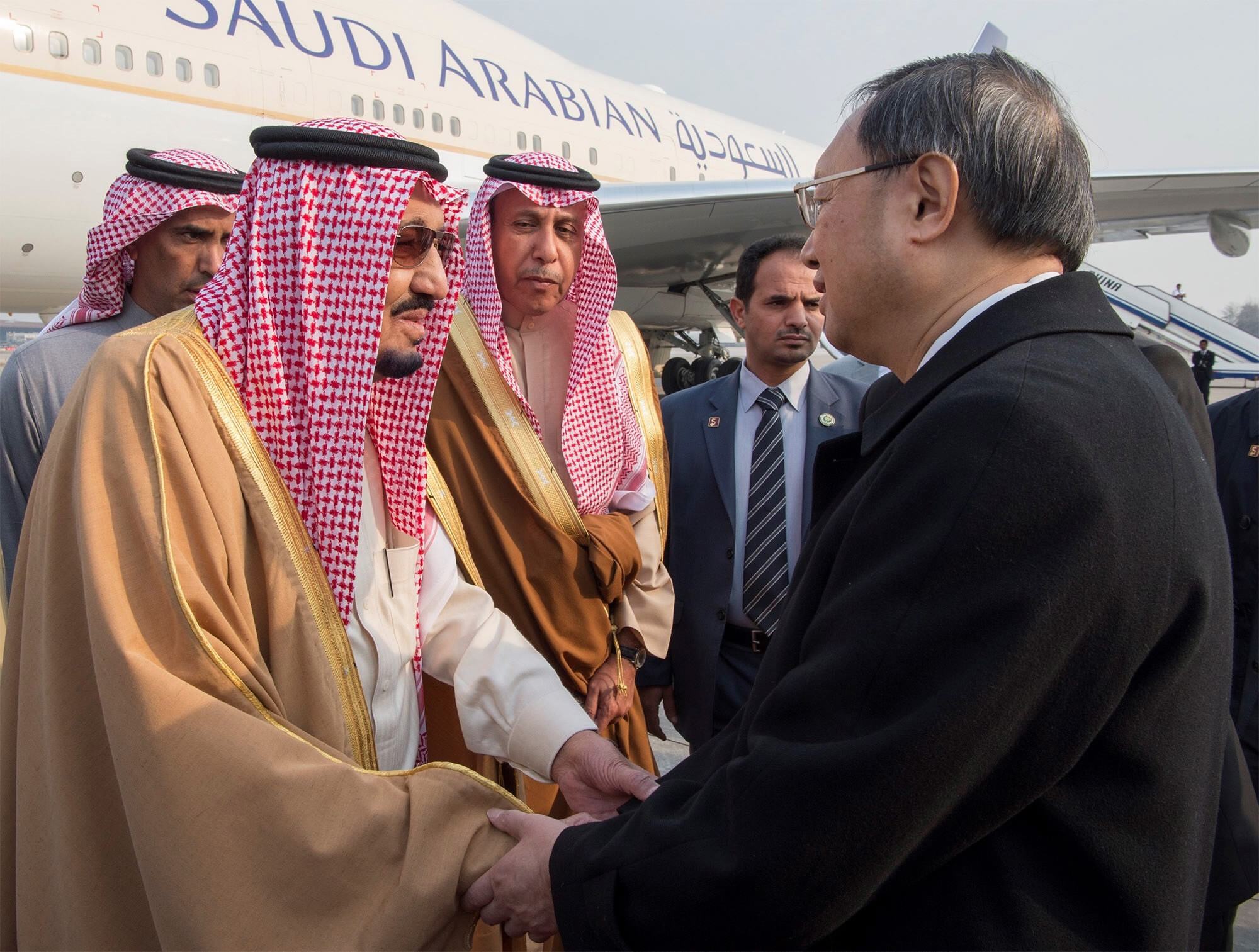Aiming to implement a "look eastward" strategy, Saudi Arabia’s King Salman began his three-day state visit to Beijing on Wednesday.
This rare one-month-long Asia trip reflects Saudi Arabia's intention to integrate with the Belt and Road initiative to realize the "Vision 2030" of the country, according to Wang Lincong, secretary general of the Gulf Research Center of the Chinese Academy of Social Sciences (CASS).

China's high-ranking diplomat Yang Jiechi welcomes Saudi Arabian King Salman at Beijing International Airport on March 15, 2017. /CFP Photo
The two sides will discuss enhancing cooperation in areas such as culture, economy, trade, technology, security and defense, according to Xinhua News Agency. Agreements and memoranda on education, investment, transfer of technology, industry and trade will be signed, Saudi Ambassador to China Turki Bin Mohamed Al-Mady has said.
Saudi Arabia last April announced its “Vision 2030”, a comprehensive plan including reforms in various economic and social aspects to prepare the kingdom for an era in which it reduces dependence on oil revenue.
“Amid the decreasing of crude oil price and the needs for economic diversification, the Saudi king’s visit to Asia and China is set to seek for partners and investors in the Asia-Pacific region”, according to Wang.
China and Saudi Arabia lifted ties to a comprehensive strategic partnership last January, and cooperation is ongoing under the Belt and Road framework. A series of projects have been implemented, including the establishment of a petroleum refinery company in the Red Sea port city of Yanbu after Chinese oil giant Sinopec's deal with Saudi oil giant Aramco.
China-Saudi cultural exchanges have also increased in various fields, including movies, and cultural and educational cooperation. In addition, China and Saudi Arabia are seeking to reach a free trade agreement at this year’s Gulf Cooperation Council meeting.

Saudi King Salman bin Abdulaziz arrives to attend the inauguration ceremony of the Yanbu Aram Sinopec Refining Company in January 2016./CFP Photo
Last week, Chinese Foreign Minister Wang Yi said China is willing to take a “necessary role” in Saudi-Iran relations. “China has for a long time enjoyed a very wide range of circles of friends in the Middle East region, and has kept good relations with both the Arab world and Iran", said Wang. He added that China could also offer help to resolve regional conflicts in the Syrian issue, anti-terrorism and Yemen truce talks.
Energy cooperation remains the foundation of relations between Saudi Arabia, the world’s top exporter of crude oil, and China, the world’s biggest importer.
According to Wang, China will also help Saudi Arabia to diversify its economy, given that China’s corporations and investments have already entered the country to participate in construction work, such as building bridges and ports, and energy and telecommunications networks.
King Salman’s visit will set a broader vision in China-Saudi cooperation in various aspects, including upgrading the structure of energy industry, and trade and economic cooperation under the framework of the Belt and Road Initiative.









